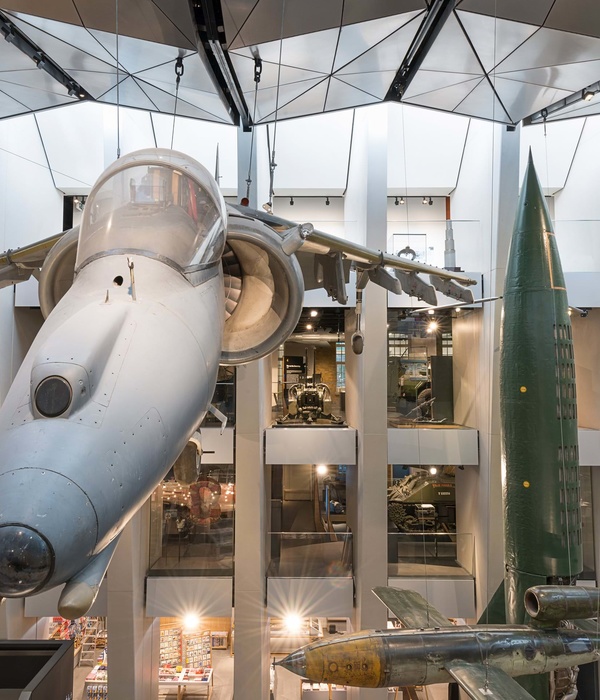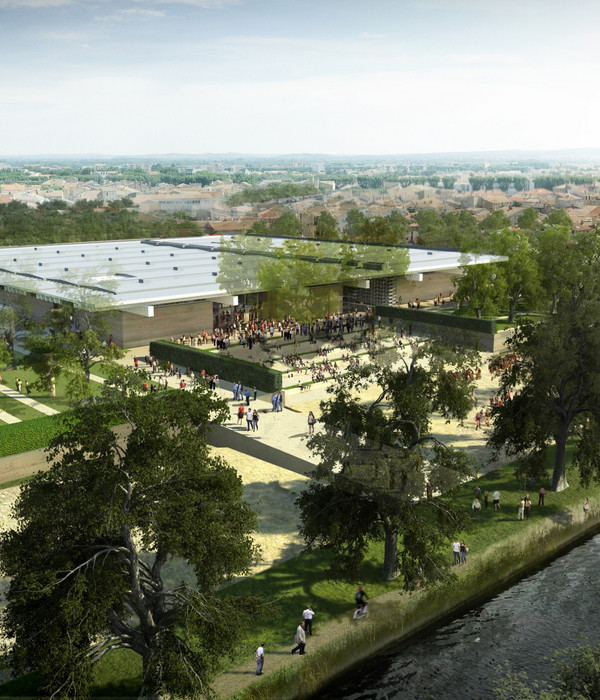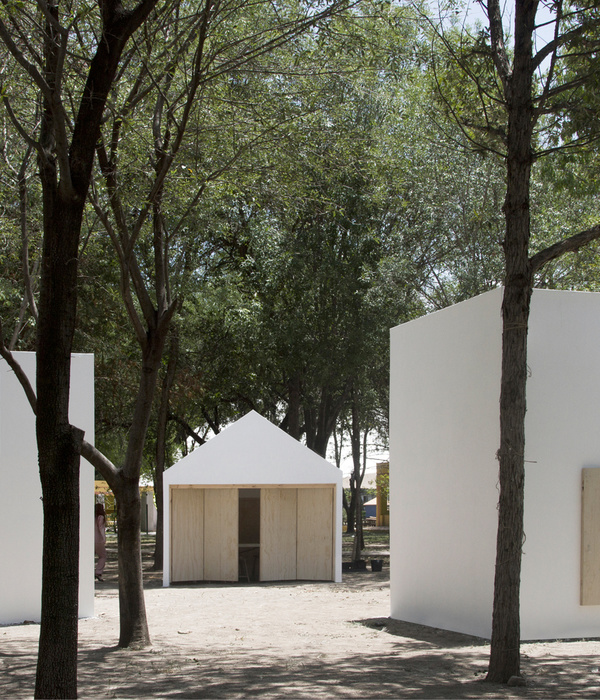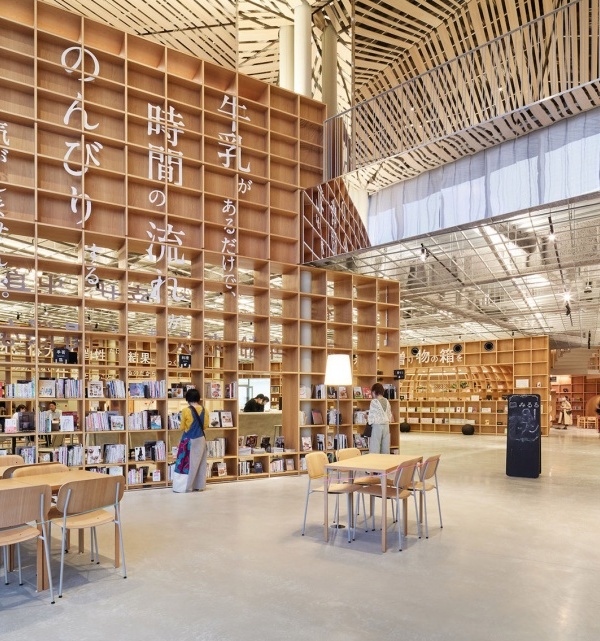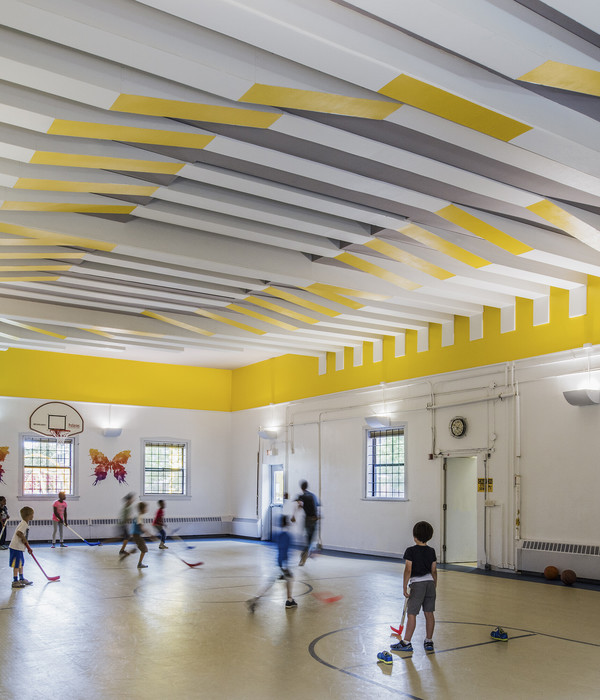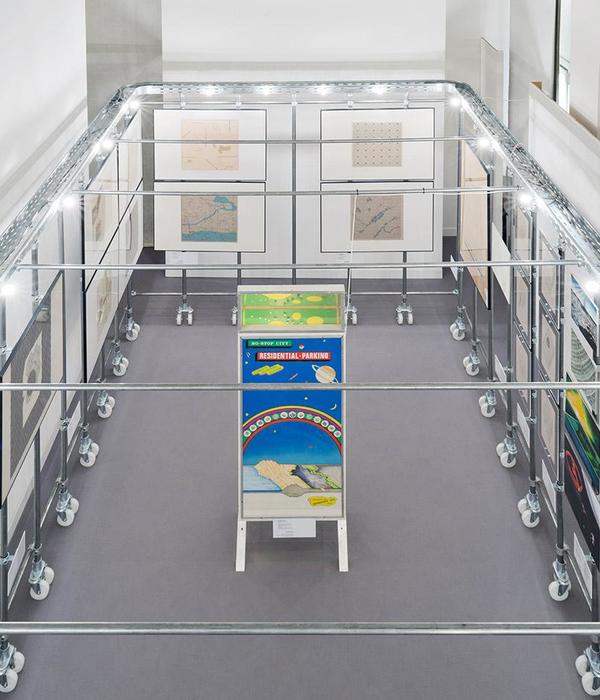In the village of Zvizzhi in the Kaluzhskaya Region of Russia architects Sergei Tchoban and Agniya Sterligova have built a Museum of Rural Labour. The architects were asked to create a small structure which would be capable of preserving the cultural memory of this settlement while fitting naturally into the existing landscape. Due to its small size, the museum has only one room; this contains a permanent exhibition which is open to the public.
A tower with a diameter of 3.2 metres and height of 8 metres stands in a potato field at the intersection of two rural roads, as a sign marking the way out from this tiny settlement, one of the many such villages in Russia. In effect, this is an enlarged round column topped with a square capital of more than 1 metre in thickness. By combining these emphatically simple, understated forms, the architects have recreated the pre-Petrine column, which is so characteristic of traditional Russian architecture. Likewise traditional are the materials chosen for this project: both the tower’s facades and the interior walls are covered with earth plaster. Visually, this structure calls to mind all kinds of associations – from a banal water tower to the last surviving column of a no longer existent acropolis. An outside observer would find it quite difficult to evaluate the structure’s true scale since, being clad with clay, the tower seems to merge with its earth base and with its surroundings in general; you might easily think it has been here forever.
The column tower embodies a fundamental principle: it is both literally and metaphorically a support. The metaphor reveals itself more fully to those who walk round the tower to discover on the side furthest from the road an inconspicuous door. Entering, we see that the skylight on the structure’s roof turns the tower into a light well. The skylight is made from yellow glass, compelling the interior space of the art object to glow with a warm yellowish light even during the most overcast weather. The tower’s inner walls are entirely covered in a permanent exhibition consisting of objects from rural life which have been collected from nearby villages and settlements. Positioned in a spiral, these artefacts seem to be rising into the sky, underlining the sacral importance of work on the land, work which has always been the basis for man’s wellbeing.
{{item.text_origin}}




